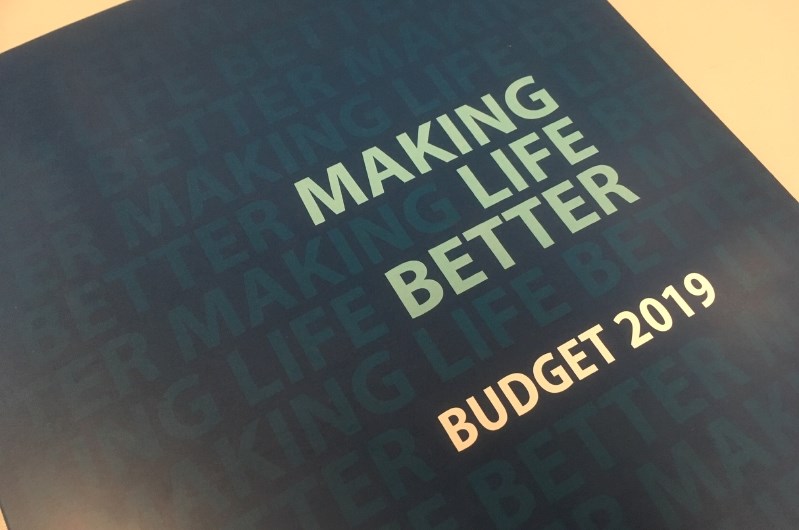The provincial government is holding its course with the 2019 budget, and the absence of major changes in direction — both the speculation tax and the employer health tax remain — can be taken as a sign that the NDP, at least, thinks it is here for the duration, despite its slim two-seat margin in the house.
Finance Minister Carole James said the $58-billion budget puts people first, offering child benefits for families and assistance increases for the poor and eliminating Pharmacare deductibles for low-income families.
“British Columbia is thriving,” James said. “But we will never have a truly prosperous province unless everyone can share in that prosperity.”
The day’s big announcement was the new B.C. Child Opportunity Benefit, set to come into effect in fall 2020. It replaces an existing tax benefit, providing families with one child under 18 with as much as $1,600 a year, more than double what the old benefit provided.
The budget increased money for foster parents, adoptive parents and relatives caring for children, and boosted social assistance payments by an additional $50 a month — an amount critics called “far, far too low.”
Interest on B.C. student loans has been eliminated, providing some relief for indebted students as they enter the workforce, and the government announced a new agreement that will provide First Nations with $3 billion over 25 years from provincial gaming revenue.
Despite the new programs — as well as reduced revenue from ICBC and B.C. Hydro — there are no new tax measures in this budget. But some tax increases promised last year take effect.
Businesses will benefit from some of the social programs, particularly those that address the availability and cost of child care and housing, but they are feeling the sting of added costs in the form of the employer health tax, increases to the minimum wage, and rising corporate and carbon-tax rates.
The budget bore some Green fingerprints, including the elimination of student loan interest and the clean-energy incentives in the Clean B.C. program. The funding — almost a billion dollars over three years — is being touted by James as the largest investment in climate programs in the province’s history.
There are some gaps. As with last year’s budget, there was little for Vancouver Island: Some money for capital projects at the University of Victoria, North Island College and Camosun College, and work on Highway 4 near the Tofino-Ucluelet junction, but nothing for the Malahat.
And while last week’s throne speech was all about “affordability,” neither it nor the budget offered much in the way of new details, and the promised $400-a-year benefit for renters has yet to materialize.
Affordable $10-a-day child care also remains a promise, with full implementation of the program somewhere in the future.
When it comes to housing affordability, James and the government remain “cautiously optimistic” that the speculation tax is having the desired moderating effect on prices.
“If changes are needed, we are more than happy to make changes,” she said, though there were none Tuesday. “Our goal here is affordable housing.”
James laid out a path for long-term change in last year’s budget. She might be optimistic about the progress so far, but whether the measures are ultimately successful is yet to be seen.



